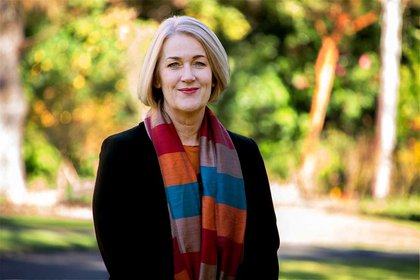
Professor Mills.
By College of Health Pro Vice-Chancellor Professor Jane Mills
The ongoing debate about the establishment of a medical school at Waikato University has shone a much needed spotlight on the state of New Zealand’s rural health services.
It is increasingly difficult for New Zealanders living in rural communities to access basic health services in their community. This doesn’t just mean those in this community struggle to see a doctor; they struggle to see any healthcare professionals, be it a nurse, pharmacist or psychologist, for example.
The issue faced by rural communities is by no means new and ensuring those who live outside of metropolitan areas have access to healthcare is an issue the New Zealand Government has tried to tackle for more than a century.
But it is not just the Government that has a role to play, as the recent discussions – sometimes heated – between Waikato University and the Universities of Auckland and Otago illustrate. As an educational institution Massey University – like all New Zealand universities – has a responsibility to improve, influence and change the lives of New Zealanders through education and research.
Preparing a workforce to serve rural and under-served communities requires us to take a different approach with our curriculum and student learning experience. We need to ensure students, ahead of becoming registered healthcare professionals, have the opportunity to participate in a range of positive clinical experiences in a diverse range of settings, allowing them to more fully understand the potential of a rural health career.
Since the early 1970s Massey graduates have made a significant contribution to rural and under-served communities, particularly in the disciplines of nursing, social work, nutrition, psychology and allied health. Each year, many of our health professionals gain employment outside the major metropolitan cities, making a significant difference to the lives of New Zealanders. This includes a large number of school leavers who aim to graduate with a degree in health that will be both a passport to employment and enable them to serve their local community and whānau.
By partnering with organisations and stakeholders, universities can increase their benefit. Massey University’s longstanding partnership with Workforce New Zealand to implement the Te Rau Puawai - Māori Mental Health Workforce Development Programme illustrates this point. Each year the initiative provides bursaries and learning support for students who are seeking to commence or complete a qualification in the field of Māori mental health, with the expectation students will seek employment in a relevant Māori mental health field upon graduation. Not only do these students go on to work in the field of Māori mental health, many have gone on to take up roles in rural communities.
Technological and digital advances are making it easier to provide high-quality education to students while they remain in their rural communities. Take for example Massey University’s current online offering of the Bachelor of Health Science, which provides a unique opportunity for students located in rural New Zealand to engage in tertiary study that results in local jobs. From 2019 the number of majors available in this degree will increase to include mental health and health systems design, with the aim of meeting future workforce demands. We also plan to offer the Bachelor of Nursing online and part-time in the very near future with the aim of bringing this opportunity closer to where people live.
It is important that universities take this opportunity presented by the current debate to consider how we can positively influence the provision of healthcare to rural and underserved communities in New Zealand; individually, collectively and by partnering with other organisations to meet the health workforce needs across the nation.
Professor Mills heads Massey University’s College of Health. She has authored or co-authored 114 published journal articles and five books, as well as being the recipient, solely or jointly, of more than $1.8 million in research and consultancy income. Her PhD thesis was on rural nurses' experiences of mentoring.